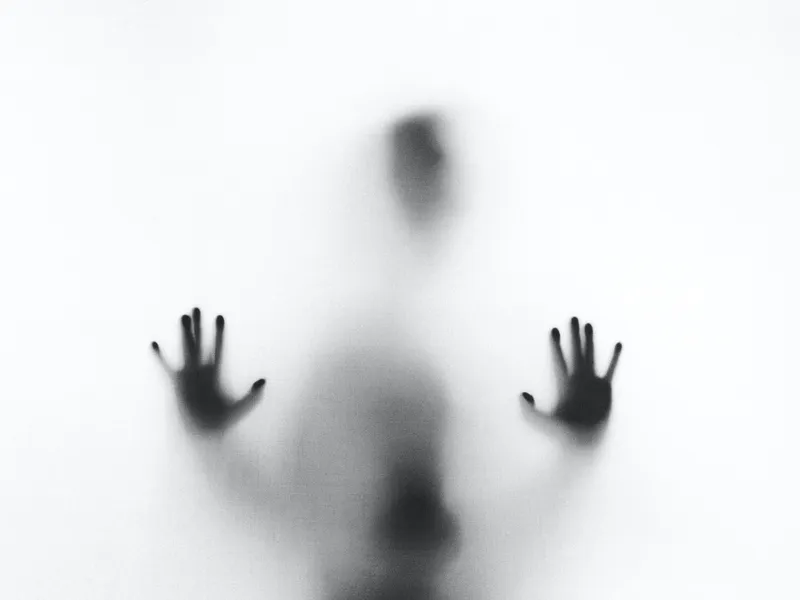My Life Is Not Worth Living
My thoughts go straight to the extremes. Do they have to?
16 Nov 2015

My thoughts often make these leaps:
When things go wrong, my life is not worth living…
If I don’t get a degree, my life is not worth living.
If I don’t have a partner, my life is not worth living.
If I fail at work, my life is not worth living.
If I spend an evening alone while others are out having fun, my life is not worth living.
If I’m not one hundred percent healthy, my life is not worth living.
If I’m not the best, my life is not worth living.
If I don’t have the nicest place to live, my life is not worth living.
If I fall out with a friend, my life is not worth living.
If a stranger thinks bad thoughts about me, my life is not worth living.
If someone doesn’t like something I create, my life is not worth living.
If I fail an exam - or don’t get an A - my life is not worth living.
If I am not the most popular, my life is not worth living.
If I’m not considered attractive by most people, my life is not worth living.
If I’m not famous, my life is not worth living.
If I don’t have everything I want, my life is not worth living.
If I don’t have anything I want, my life is not worth living.
If I don’t get my dream job - or any job - my life is not worth living.
… But These Thoughts Are Nonsense
Hm. That might be a harsh way to put it; I don’t want to minimise anybody’s pain.
These tough experiences are extremely painful.
Or, more accurately, they can be extremely painful. No external event is guaranteed to cause any particular feeling. Maybe somebody is acting annoying. That doesn’t mean I have to be annoyed. Maybe my life is falling apart. That doesn’t mean I have to be sad.
There’s no law of the universe that forces us to react any particular way to any particular event.
It’s just easier to be happy when things go our way, and sad/frustrated/despairing when they don’t.
It’s All About Pain
We could rephrase each of these thoughts as: “I’m in so much pain, my life is not worth living.”
Perhaps a situation exists that is so painful, and so impossible to escape, that it would be correct to believe this.
But there are many, many more situations where our minds convince us we’re in a totally hopeless situation… but in reality we are not.
I’ve had moments of ice-cold despair in which I’ve wondered if I’ll ever be able to experience happiness or peace ever again.
Those moments feel alien to me now, almost as if they happened to someone else. But I can still remember exactly how they felt.
If, in those moments, I had the ability to zoom out from my own brain to see the situation objectively, I would have realised that although my situation felt hopeless, in reality it was not. My perception was skewed by my beliefs about the situation.
(I now know for certain that my perception was skewed because I can now see from a much calmer, happier place. Clearly, by demonstration, I’ve proved to myself it WAS always possible to reach this calmer, happier place, and I was wrong to believe it was impossible.)
It seems that our brains are designed to “round up”. We feel pretty hopeless, so we assume we are without hope. But our perception is not reality.
Still, that’s easy to say, and SO hard to absorb. Particularly because we have to absorb the idea through our flawed perception.
What Is “Worth Living”?
For me, it helped to consider extremes:
If I were alone and unloved, would my life not be worth living? If I lived in an empty, unpleasant cave, devoid of human contact… would my life not be worth living? If I failed at everything I ever attempted from now on, would my life not be worth living?
And the big question: Would I press a button to exterminate someone who lived in such a situation, and feel no remorse because I believed their life to be so worthless I’d be doing them a favour?
No. I found that I believed a solitary life… full of failure… in an unpleasant environment… still had value.
The question became “why, then, do I believe my own situation - which is better than this extreme I’m imagining - has less value?”
The only sensible answer is that my perspective is skewed. My feelings about myself are wrong, and I don’t need to trust them.
And that means there is value in my current situation, and I just need to find it.
I certainly don’t have any easy answers for how to do this. But even the smallest possible reason to hope can be enough.
It’s possible to move from “my life is not worth living” to “I don’t have everything I want… but my life has value to me.”

Neil Hughes is the author of Walking on Custard & the Meaning of Life, a comical and useful guide to life with anxiety, and The Shop Before Life, a tale about a magical shop which sells human personality traits.
Along with writing more books, he spends his time on standup comedy, speaking about mental health, computer programming, public speaking and everything from music to video games to languages. He struggles to answer the question "so, what do you do?" and is worried that the honest answer is probably "procrastinate."
He would like it if you said hello.